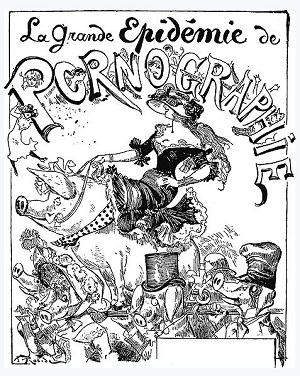
June 3, 2013, by Jonathan
Education and Pornography
Should teachers discuss pornography as part of a child’s sex education? (http://www.bbc.co.uk/news/magazine-20042508.)
Those in the ‘yes’ camp argue that pornography perpetuates unrealistic norms and children need to know this. Those in the ‘no’ camp think that such inappropriate material has no place in schools. The philosopher is in a unique position to strengthen the ‘yes’ camp’s argument.
Imagine a play which involves an actor warning the audience that there is a fire. Now suppose that as she is giving her lines she sees a real fire. In this circumstance, despite the actor’s shouts and screams, despite her jumping up and down, she simply cannot warn the audience there is a fire. They hear the shouting, of course, but they hear it as a part of the play.
What on earth has that got to do with pornography and sex education? Well, what this shows is the act of ‘warning’ can only be performed if there are certain conditions in place; in this case that the people hearing the words don’t take the words to be part of a performance.
Philosophers think this idea can be generalized. For certain speech–acts – e.g. warning, marrying, sentencing – to be possible, certain conditions have to be in place. Now given this and echoing many writers on pornography – most notably Catherine McKinnon – I think the case for including lessons about pornography can be strengthened.
If refusal is a speech-act then, for someone to be able to refuse, certain conditions must be in place. Most importantly, the ‘audience’ must recognise ‘no’ as refusal. Otherwise, saying ‘no’ would be analogous to the actor shouting ‘fire’.
But often in pornography – e.g. ‘rape porn’ – ‘no’ is not taken as refusal. So if, as the evidence seems to suggest, people are learning about sex from pornography then this will have direct real life implications. Specifically it may lead to cases where (for instance) a person says ‘no’ to a sexual advance, but the act of communicating refusal is impossible. ‘No’ is not being seen as an act of refusal, but as a part of sex itself. Alarmingly, in such cases consent would be withheld, but the speech act of refusal is not recognised, and cannot be successfully performed. How likely is this? Well, the idea that ‘no means yes’ is certainly a live one.
What’s the antidote? Introduce discussions about pornography into sex education. This would allow people to have genuine understanding of words like ‘no’ in sexual contexts and as such allow the act of refusal to be performed. Further, it would give them an understanding of how pornography could have a role in shaping those conditions. This, in turn, would help young people better identify and understand the social pressures they may be subject to, and that may affect the possibilities for communicating about sex and consent.
Useful follow-up.
Saul, Jennifer (2003) Feminism: Issues and Argument (OUP). Especially chapter 3.

Andy, I’m not sure if your example really holds. Everyone understands the term no and has experience of being refused something, and they can transfer this understanding to the ‘rape case’ because the meaning of the word transcends the situation. If a child asks ‘Can I have this?’ and is told ‘no’, then they can associate this with a refusal in the rape instance. Surely only someone who is deficient by normal standards would think that a person saying no to sex is not being serious or would require additional situational specific instruction in order to understand this refusal.
I read the two articles that you linked to, the Guardian one tapped into the idea that leading someone on makes them somehow implicit in the rape act, an idea which seems incorrect but also appears to be an almost common thought. The article about Yale concerns ‘pack culture’ and , to some extent, Uni culture. But neither, it seems to me, would be resolved with the use of pornography in school as an educational tool.
Thanks Edward. I am not sure which example you are talking about.
I am interested that you think that meaning ‘transcends the situation’. You can I think imagine cases where one words has different meaning given different contexts? E.g. code words, or words asserted with a wink. Isn’t this true? Or do you think that a word has the same meaning in all contexts?
If you agree the meaning can vary given the context, then it seems that the meaning of ‘no’ could vary in different contexts and if it does then you might think that contexts are influenced by how people understand what is being said. Hence the importance of education.
I feel though that I might have missed something more detailed/subtle in your comment, sorry.
Happy to answer anything else.
The best thing to read on this is the Saul stuff I reference under ‘Useful follow-up’.
Thanks,
Andy
I read “meaning transcends the situation” to mean that no means no, whatever the context. The idea that there might me a mutually understood code from which “yes” can be derived from “no” sounds surreal and conflates performance with reality, as exemplified in the “fire” example. That pornography is (maybe should be) performance makes it an unreliable source for real relationships. I think that if sex is taught as a relationship rather than an art form, fewer mistakes would be made. I fear however that many teachers are not suitably qualified to teach about relationships. I see no need for porn in the classroom. Teaching ‘good’ values I believe is more beneficial than showing bad examples.